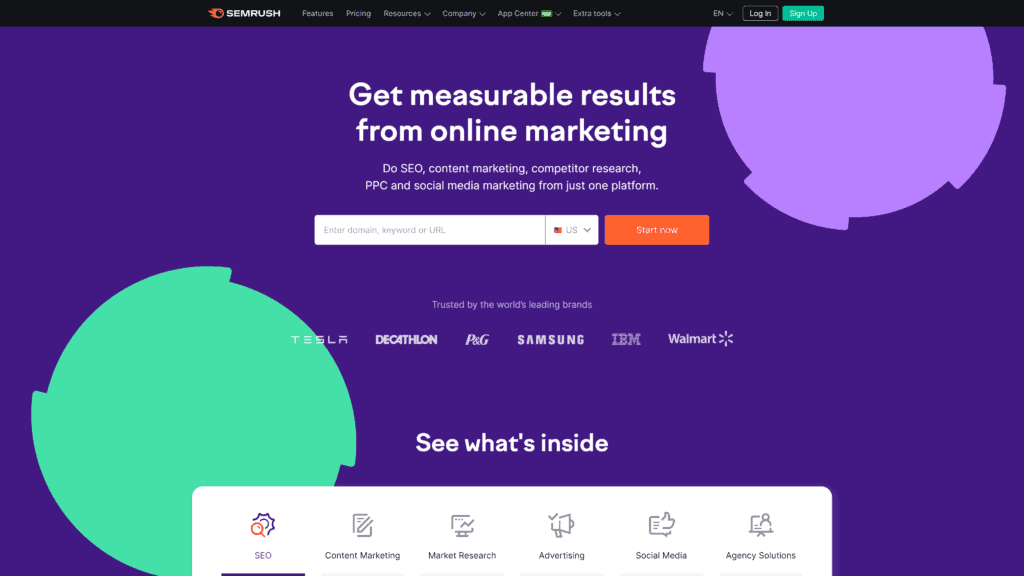Keyword tracking is an essential practice in SEO strategizing.
Using low-impact keywords on your website derails your ranking in search engines.
You aim to rank highest or the first results when people search for keywords in your niche.
It aligns your website with future optimization opportunities.
The right keyword helps you realize higher rankings and visibility in search engines, including SEO for WordPress sites.
Learn more about keyword definition and its best practices.
- What Is Keyword Tracking?
- How Does Keyword Tracking Work?
- Different Types of Keyword Tracking
- Example of Keyword Tracking
- Does Keyword Tracking Affect SEO?
- Process of Tracking a Keyword
- How To Track Keywords For SEO
- Keyword Tracking Best Practices
- Keyword Tracking Tools To Save Time and Money
- Other Related SEO Terms To Know
- Frequently Asked Questions
- Wrapping Up
What Is Keyword Tracking?
Keyword tracking measures keywords and how your website ranks against the set keywords.
It helps you analyze your website’s performance and how to meet the search engine optimization requirement.
In addition, it helps you compare with keywords on other websites to know which keywords you are missing out on and how it can boost your visibility.
What Is the Difference Between Keyword Tracking and Keyword Research?
Keyword tracking monitors the performance of your based on your optimized keywords.
It uses different software or traditional methods to analyze the impact of keywords on your website rankings.
In keyword research, professionals search for the most used terms or words when searching for particular products or services.
Then, you use keyword research results to optimize your website in search engines.
How Does Keyword Tracking Work?
Keyword tracking uses keyword monitoring tools like analytics software (SEMrush or Google search console) that analyzes how specific targeted keywords rank on competitors’ websites.
These results help you choose influential keywords to increase your website ranking.
For traditional keyword tracking, the entrepreneur manually checks the website ranking when searching for specific keywords.
However, searching the keyword in different areas and accounts helps you variate the results to reflect your website performance accurately.
What Is the Purpose of Keyword Tracking?
The primary purpose of keyword tracking is to enhance your online visibility in search engines.
Therefore, your website rank should be the first or among the first results on the first page of a keyword search.
Such results improve the customers’ awareness of your products or services, thus impacting your sales or profitability.
Different Types of Keyword Tracking
Using different types of keyword tracking allows you to understand and optimize your website.
Each tool gives different results according to the set metrics like location, volume, or the type and length of keywords used.
Recently, marketers are adopting long keywords for their websites to increase traffic.
Simple Keyword List Tracking
This method involved having a single list of keywords business owners use for tracking.
It’s the best fit for businesses with one product or in a single location.
The reports on this tracking method include showing the trend across different times or how the keyword performs in WordPress SEO ranking.
Multi-Location Tracking
This tracking method suits businesses in multiple locations or has different products.
It allows you to track the performance of different keywords per product to understand how to optimize each product independently, successfully, and as a group.
Category Split Keyword Tracking
With category-split keyword tracking, you create a unique identifier for your simple keyword list to narrow user searches.
It eliminates the generalization of specific keywords or products that may obscure your web page visibility.
For example, if you sell backpacks, you may add the brand name or something unique to your items to improve your web ranking.
Keyword Funnel Tracking
Keyword funnel tracking uses behavioral and engagement patterns of the customers to analyze the web traffic data.
It gives you a report on how your keyword impacts lead generation and customer engagement.
Example of Keyword Tracking
So, how do you gauge your SEO success using keyword tracking?
For example, if you deal in children’s clothing, choose a primary keyword from your keyword research that best describes your business.
Then, you should get your website on the first page and top results when you search the keyword.
Tracking this keyword data concerning your website should help create a tracking pattern showing the website’s performance.
Does Keyword Tracking Affect SEO?
Keyword tracking is essential for perfecting keyword research into SEO strategy for your website.
You can’t optimize your website if you don’t understand what your website needs.
Keyword tracking identifies the crucial SEO elements you should work on to improve your content and website for your users’ satisfaction.
Why Is Keyword Tracking Important for SEO?
Keyword tracking lets you understand which content or segments to focus on to improve the website’s visibility and online presence.
You’ll know what works for you and what lowers your web performance on the internet.
It helps you to customize and optimize your website content for higher rankings and traffic.
Higher traffic translates to a boost in sales and customer base, increasing profitability.
A dip in web traffic could be due to poor or vague keyword performance.
Enhancing your content using appropriate or long specific keywords could restore your web traffic.
Is Keyword Tracking Necessary?
Keyword tracking is necessary to manage your SEO optimization in your web content.
You can tell your competitors’ performance using specific keyword tracking analysis data.
Using this comparison and data analytics report, you can modify and adjust your content using researched keywords to boost your web ranking in search engines.
Additionally, it’s easy to keep tabs on trending keywords and how they impact the industry giving you a headstart when making specialized content.
Finally, it makes your content up-to-date and relevant to the business and financial position in the market.
Process of Tracking a Keyword
The right keyword sets you up for an easy keyword-tracking process.
Choosing the right keyword and tracking tools influences your SEO success and web improvements.
Check out this step-by-step process of keyword tracking.
Find and Choose Keywords To Track
Do keyword research from your niche, market, or competitors to know which words to include in your content and website.
For example, if you sell laptops, look into which terms are trendy, like core processing or speed and storage, together with your brand name to make it catchy.
Choose the Performance Metrics and Tracking Tools
Once you have your keyword, choose the tracking metrics and tools to use.
Look into different analytics software to match your keyword density and performance of your website.
Traditional keyword tracking methods focus on diversifying the search to different locations or positions for a broader search scope.
Modern tracking tools are more reliable and create comprehensive reports.
Using graphs and tables can tell how your website performs over time, giving insight into how you can optimize your website using different keywords.
Combining different metrics results will devise effective methods of modifying your content for higher rankings.
In addition, it helps you notice the changes in your ranking, thus prompting you to change how you utilize your keyword.
Get the Feedback Report and Analysis
Use the feedback report to monitor your ranks over time.
Use these questions to enhance your analysis:
- What is the trend of your rankings?
- Did you change anything to have different positions during the period?
- Which keywords have the most significant influence on your rankings?
- How does each keyword category perform individually?
Answering these questions from the tools’ data analysis allows you to develop conclusions that improve your content and website.
How To Track Keywords For SEO
Choosing keywords for your website is a make-or-break moment for your SEO campaign.
First, you must find influential words whose meaning elevates your products or services.
Here are some steps to help you find the perfect keyword for your website.
- Look into different categories of keywords to learn how to combine them for effective optimization
- Know where you should look for the keywords
- Compare the keyword performance with other competitors
Keyword Tracking Best Practices
Since you now understand how to employ keyword tracking in your website, you should learn how to maximize the SEO effects of your content.
Check out these tips on optimizing your keyword tracking for the best results.
Choose the Right Keywords
The right keyword improves your website ranking.
Start by choosing the correct category of the keyword.
Next, consider your product or service and your brand name to find out how you can utilize these features to optimize your website.
Your competitors’ website acts as a good information buffer.
Investigate which keywords they use and how it affects their website ranking on Google.
Use Efficient Tracking Tools and Methods
Choosing the right keyword-tracking tool should improve your feedback regarding the graphs, tables, and charts.
You’ll get more meaningful information when using the right tools and methods.
Consult the SEO experts to get more information on how to manage the tracking tools to get more details on your website’s performance.
Adjust and Change Accordingly
SEO and keywords, like other types of technology, change rapidly.
Therefore, you must be ready to adapt and use other software or tools to improve your SEO impact.
Being flexible when using these tracking tools can prevent your website ranking from declining and falling off the charts.
Get such information quickly to improve your optimization campaign’s keyword tracking and SEO effect.
Keyword Tracking Tools To Save Time and Money
Keyword tracking tools help business owners to understand and analyze the website’s running without much effort.
They use data analytics tools that simplify the feedback from the tools to give meaningful data where you can draw recommendations.
Some have detailed dashboards where you can understand the website’s performance at a glance.
It is a simple yet effective way of elaborating and presenting the tracking data for easy understanding and implementation of the results.
As a result, you save time that you would have used to analyze and draw comparisons and recommendations from it.
Moreover, you don’t have to use other professionals to get the correct feedback from the tracking data.
What Is a Keyword Tracking Tool?
A keyword tracking tool is a data analytics tool that helps people create charts, graphs, or tables to explain the tracking data.
Also, it establishes a presentation from the given data where you can break down different metrics and performance data for elaboration.
Our Favorite Keyword Tracking Tools
People use numerous software and applications as their tracking tools to improve their tracking data.
Some of the most popular keyword-tracking tools are:
Ahrefs

Ahrefs offers numerous activities on the platform.
You can do keyword research, SEO activities, and site analysis for backlinks or other SEO requirements.
Its versatility in the industry makes it the go-to option in SEO.
Semrush

The benefits of SEMrush in promoting SEO success through its features and analysis options attract many people.
You can find your keyword tracking in this easy-to-use interface and efficient platform to improve your web ranking in search engines.
Frase.io

Frase.io allows you to do your keyword research and tracking on its platform.
It works best for content editors who want to include specific keywords in their websites to improve the ranking or keyword association.
With its integrated tools and services, you will surely get enhanced data analysis which you can use to improve your content optimization.
Other Related SEO Terms To Know
SEO is a broad scope where you have to integrate different tools to get the desired effect on your website.
Here are other terms you should know about SEO.
- Benchmarking: SEO Benchmarking is when you use your competitors’ website keywords to understand what makes them tick for your implementation and success.
- SEO Strategy: SEO strategy is your marketing or optimization plan that aims at improving your visibility based on specific keywords or tools
- Deep Linking: You use deep linking to hyperlink home or landing pages in your web content.
Frequently Asked Questions
Here are some common questions on keyword tracking and SEO:
Can Google Analytics track keywords?
Yes. You can use Google analytics tools for your keyword tracking.
First, however, you must learn how to improve SEO by integrating these tools into your web content.
What are the four types of keywords for SEO?
The four types of SEO are on-page SEO, off-page SEO, local SEO, and Technical SEO.
Wrapping Up
Keyword tracking in SEO is a vital tool when perfecting your SEO strategy.
Keeping up with the market trends in social media and other online platforms gives you a glimpse of the power of using the correct keyword.
Use this keyword tracking information to improve your website ranking and boost your customer base, sales, and profitability.






